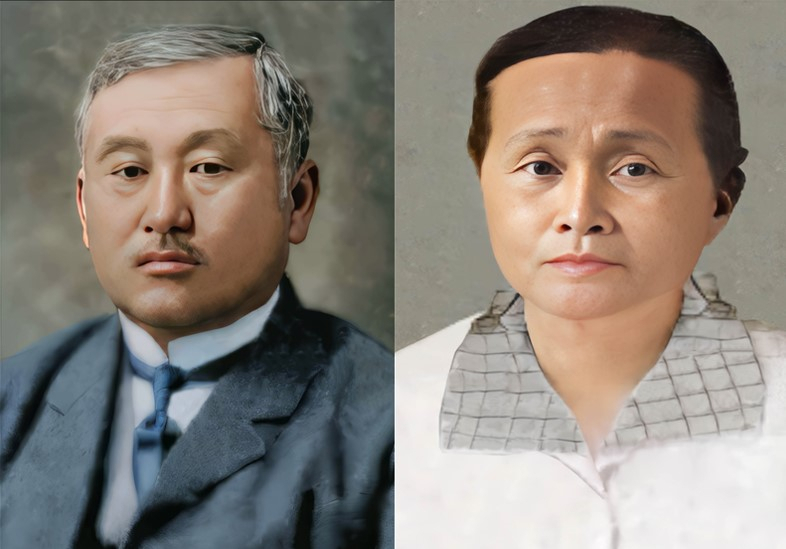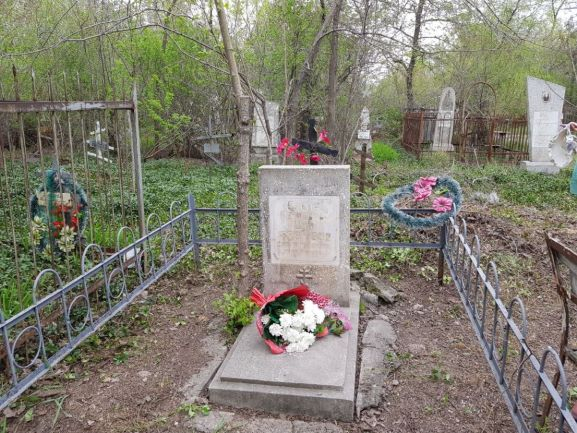Remains of Korean independence fighter, wife to reunite after century apart
By Ji Da-gyumPublished : Aug. 1, 2023 - 15:33

The remains of revered Korean independence fighter Choi Jae-hyung and his wife will be symbolically reunited in South Korea, having been separated across Russia and Kyrgyzstan for over a century.
The reunion comes more than 100 years after Choi was tragically shot dead by the imperial Japanese army. Choi's body was hidden by the Japanese military and has not been found, so soil from where he died will be used instead.
On Aug. 11, South Korea will bring soil from the place where Choi is thought to have died in Ussuriysk, in Russia's Far East, the Ministry of Patriots and Veterans Affairs announced Tuesday.
Choi devoted his life and personal wealth to Korean independence while living in the Primorye region of southeastern Russia during the Japanese colonial era.
Choi was arrested by the Japanese army in April 1920, and was subjected to brutal torture. He was executed by firing squad on a mountain close to the prison in Ussuriysk.
The Japanese army flattened Choi's grave to conceal the burial site from the public eye. The location of his grave has remained unknown until this day.

Choi assumed a prominent role in 1908 when he founded the overseas organization Dong Ui Hoe, with the primary goal of uniting scattered anti-Japanese righteous army forces in Russia to support Korea's independence movement against Japanese colonial rule.
Choi supported Korean soldiers who had relocated to Russia to evade Japanese surveillance, providing them with resources.
Choi also provided the gun that Ahn Jung-geun, another Korean independence fighter, used to shoot Hirobumi Ito, the first resident general of Korea, at Harbin Railway Station in China in October 1909.

South Korea also plans to bring back the remains of Elena Petrovna Choi, his wife, in Bishkek, Kyrgyzstan next Monday.
The effort is being undertaken with the assistance of South Korean people who have donated money for the return of the remains.
Choi's wife supported her husband's independence movement efforts and is believed to have taken care of Ahn's family as well after his death. She had eight children with Choi and endured a challenging life with them until passing away in 1952.
Soil from Choi's presumed burial site and Mrs. Choi's remains will be interred together at Seoul National Cemetery on Aug. 14, one day before National Liberation Day.
A grave for Choi was established in 1970 at Seoul National Cemetery. However, in 2009, it was discovered that the wrong remains had been buried there by someone who had claimed to be Choi's descendant. The grave has remained unoccupied since then.
Choi's genuine descendants have earnestly sought the restoration of his place in the National Cemetery, but they faced obstacles due to the constraints of the National Cemetery Act, which requires the actual remains to be present.
The Ministry of Patriots and Veterans Affairs had submitted a proposal to revise the National Cemetery Act to the National Assembly this January to enable the interment of a memorial tablet for patriotic martyrs whose bodies were never recovered, along with the remains of their spouses. The proposed bill came into effect in July after being approved at the cabinet meeting.
"I believe that demonstrating the utmost respect for each and every patriotic martyr, who selflessly sacrificed their lives for the independence of our country, even when their remains couldn't be found, is the first step toward realization of the rewarding of top-tier patriotism," said Veterans Affairs Minister Park Min-shik.




















